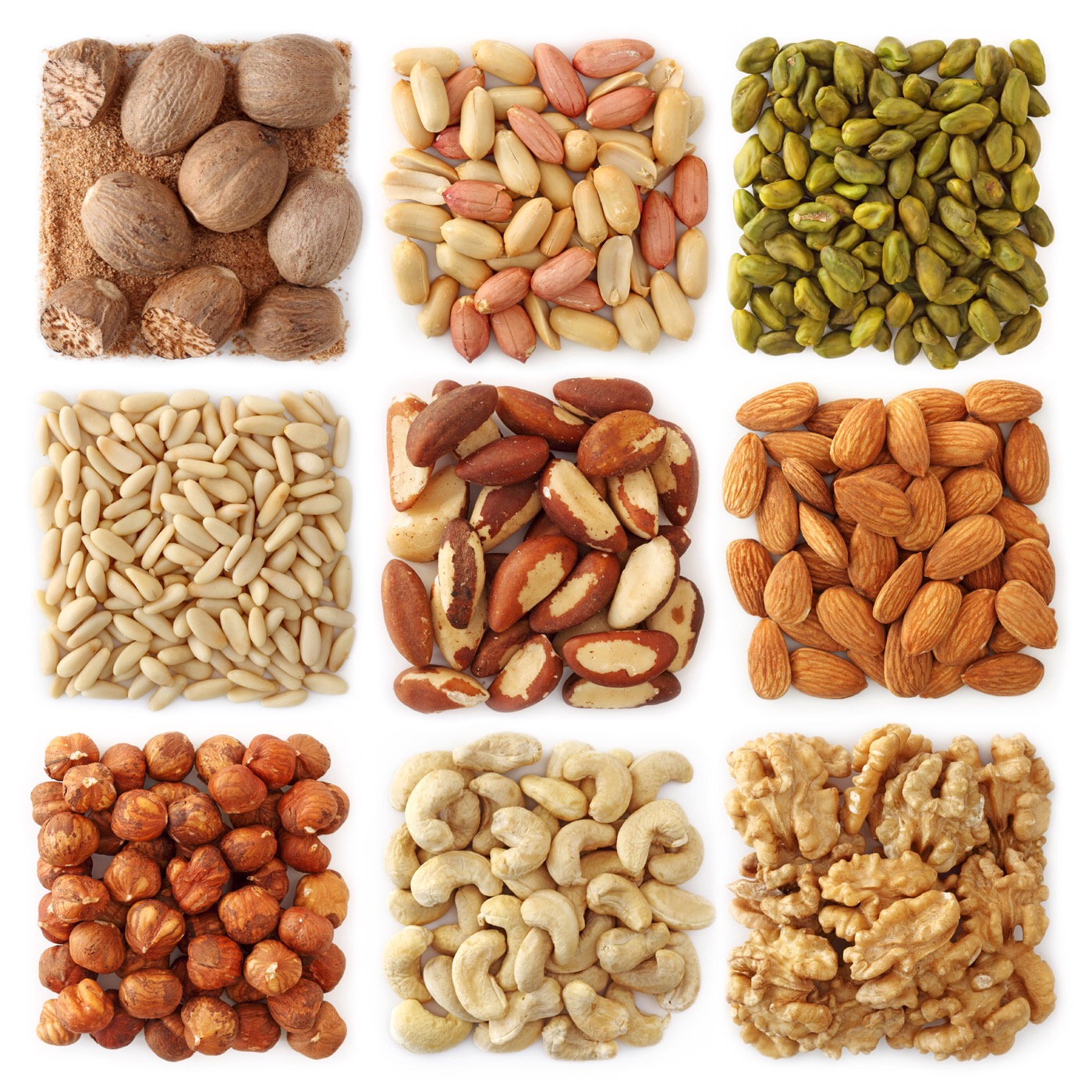When clients come to see me they, very often, expect to be given a long list of foods not to eat. One of my favorite things to do in working with clients is to be able to tell them that it is ok to eat some of their favorite foods they thought were banished for good. Nuts and nut butters are two of these foods.
Many people shy away from eating nuts when they are trying to lose weight. They think because they are high in fat and calories they should be banished to the “do not eat” list
Nuts and nut butters are nutrient dense foods that are not only rich in unsaturated fats (the good ones) but are also good sources of high-quality plant-based protein, fiber, minerals, and phytosterols – plant compounds that have been shown to lower total cholesterol up to 10 percent and LDL or bad cholesterol up to 14 percent. Studies have associated nut consumption with a reduced incidence of heart disease and gallstones in both men and women and diabetes in women. There is also some evidence to suggest beneficial effects on hypertension, cancer, and inflammation.
Yes, nuts are high in fat, but again it is the good, heart-healthy monounsaturated kind. Because they are high in fat, even though it is the good kind, they are high in calories. Despite being high in calories, numerous studies show that nuts are not associated with weight gain. In fact the opposite is true. Largely due to their high satiety – or ability to make you feel full and satisfied – including nuts has been shown to improve compliance with healthier eating habits and increase weight loss when included as part of a healthy eating plan.
Portion mindfulness is important though. Stick to one ounce of your favorite nuts per day to keep a lid on calories and still reap the health benefits.
How Many Nuts = 1 Ounce?
Almonds: 24
Brazil nuts: 6 to 8
Cashews: 18
Hazelnuts: 21
Macadamias: 10 to 12
Peanuts: 28
Pecans: 20 halves
Pistachios: 47
Walnuts: 14 halves
” Source: USDA National Nutrient Database for Standard Reference, Release 20, 2007
Nut butters, such as the old favorite peanut butter along with almond and cashew butters are also a great way to get all the nutrients found in a handful of nuts. Go with natural, fresh ground for the least amount of processing or added sugars. If you don’t like natural or don’t like the stirring that is required keep an eye on the amount of sugars on the label and stick with 3 grams or less per serving. Go with one with the least ingredients on the food label too. The simpler, the better.
Often times people ask me which type of nuts are the best choice. All nuts are healthy choices. They each have their own little unique combination of nutrients that boost health. Here are some highlights on a few great nutty options…
Pistachios
These little green wonders are low-calorie and full of nutrients and fiber. New research indicates that these ultra-healthy nuts are also good for digestion, having prebiotic characteristics “ meaning they can help support higher levels of good bacteria in your digestive tract. And there's more good news “ one serving is larger than any other type of nut (see above), and clocks in at only 158 calories and contains more fiber than half a cup of spinach. The fiber, along with pistachios' unsaturated fat, keeps your digestive system running smoothly and can help to lower cholesterol levels.
Almonds
A 1-ounce serving of almonds contains more fiber than any other nut and is an excellent source of vitamin E, magnesium, and manganese and a good source of copper, riboflavin, and phosphorus. One ounce also contains 6 grams of protein and 12 grams of heart-healthy unsaturated fats. Talk about nutrient-dense! Along with hazelnuts, almonds also contain the most vitamin E of any nut. Vitamin E, which acts as a natural antioxidant, can help prevent heart disease, boost the immune system, reduce the risk of cataracts, and play a role in healthy skin and hair.
Walnuts
Walnuts are commonly listed as a top “super food”, among the likes of beans, broccoli, soy, and spinach. They are a good source of plant-based omega-3s and they also have a high level of antioxidants – which are thought to play a role in combating oxidative stress in the body and reducing the risk of cancer and other diseases.
So, bottom line, don’t shy away from eating nuts and nut butters. Have a handful as a snack along with a piece of fruit, toss some in with your oatmeal or yogurt, throw some on a salad, or smear one of your favorite nut butters on an apple or banana. If you aren’t eating them, try including an ounce per day for increased satiety and an extra dose of nutrients for improved health.


0 Comments